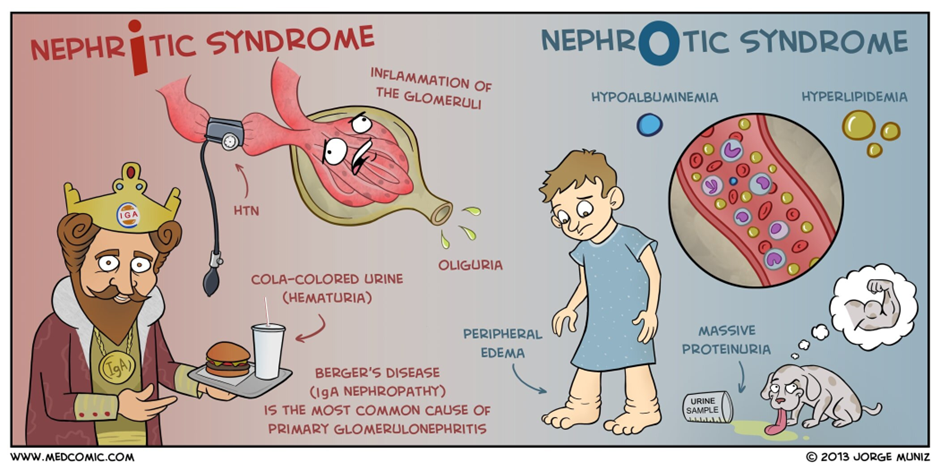A nurse is reinforcing teaching with a family member about how to position a client when administering enteral feedings at home. Which of the following statements from the family member should the nurse identify as an indication that he understands the instructions?
"I will allow the position my mother finds most comfortable during the feeding."
"I will turn my mother on her left side during the feeding."
"I will position the head of the bed 45 degrees during the feeding."
"I will elevate the head of the bed 10 degrees during the feeding."
The Correct Answer is C
A. "I will allow the position my mother finds most comfortable during the feeding."
This statement does not provide specific guidance on the proper positioning for enteral feedings. It's important to follow recommended positions to prevent complications.
B. "I will turn my mother on her left side during the feeding."
Turning the client on the left side is not a recommended position for enteral feedings. The head of the bed is usually elevated to 30-45 degrees to prevent aspiration.
C. "I will position the head of the bed 45 degrees during the feeding."
This is the correct choice. Elevating the head of the bed to 45 degrees helps prevent aspiration and facilitates proper flow of enteral feedings into the stomach.
D. "I will elevate the head of the bed 10 degrees during the feeding."
While some elevation is better than lying flat, the recommended angle is usually 30-45 degrees to minimize the risk of regurgitation and aspiration.
Nursing Test Bank
Naxlex Comprehensive Predictor Exams
Related Questions
Correct Answer is ["B"]
Explanation
Correct answer: B
A. Check the gastric residual every 8 hr:
Explanation:It is generally recommended to check gastric residuals more frequently than every 8 hours, often every 4-6 hours, especially in the initial stages of continuous enteral feedings, to monitor tolerance and prevent complications such as aspiration.
B. Change the feeding bag every 24 hr:
Explanation: Changing the feeding bag and tubing at regular intervals helps prevent bacterial contamination and maintain aseptic technique. The frequency of bag changes is typically scheduled every 24 hours or according to facility protocols.
C. Flush the tube with sterile sodium chloride solution every 2 hr:
Explanation:While it is important to flush the feeding tube regularly to maintain patency, using sterile water is typically recommended unless there is a specific clinical indication for sterile sodium chloride. The frequency of flushing (usually every 4-6 hours for continuous feeding) should be determined based on the institution's protocol and the client's specific needs.
D. Position the head of the client's bed at 15 degrees:
Explanation:To reduce the risk of aspiration, the head of the bed should be elevated to at least 30-45 degrees during enteral feedings, not just 15 degrees. Elevating the head of the bed helps prevent reflux and aspiration.
Correct Answer is A
Explanation
A. Proteinuria:
Minimal change nephrotic syndrome is characterized by increased permeability of the glomerular filtration barrier, leading to proteinuria. The loss of proteins, especially albumin, in the urine is a key feature.
B. Hypocalcemia:
Hypocalcemia is not typically associated with MCNS. In fact, the loss of proteins, including albumin, in the urine can lead to decreased oncotic pressure in the blood vessels, resulting in edema. However, calcium levels are usually within the normal range.
C. Hyperalbuminemia:
This is not a characteristic finding in minimal change nephrotic syndrome. In fact, the condition is associated with hypoalbuminemia due to the loss of albumin in the urine.
D. Positive for Ketones:
Ketones are not typically associated with minimal change nephrotic syndrome. Ketones in the urine are more commonly associated with conditions like diabetic ketoacidosis or starvation.

Whether you are a student looking to ace your exams or a practicing nurse seeking to enhance your expertise , our nursing education contents will empower you with the confidence and competence to make a difference in the lives of patients and become a respected leader in the healthcare field.
Visit Naxlex, invest in your future and unlock endless possibilities with our unparalleled nursing education contents today
Report Wrong Answer on the Current Question
Do you disagree with the answer? If yes, what is your expected answer? Explain.
Kindly be descriptive with the issue you are facing.
